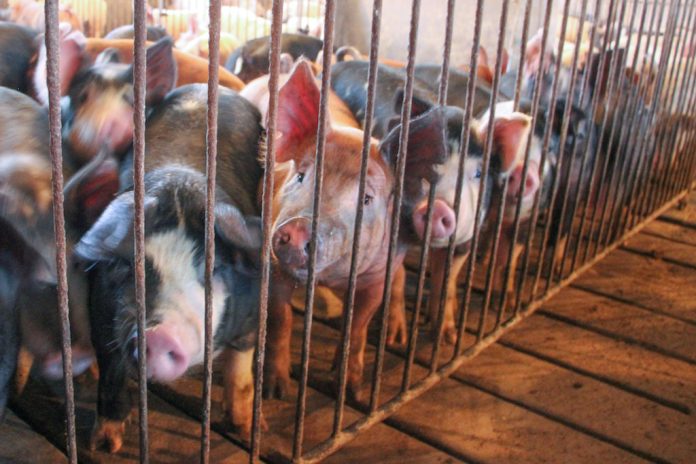LONDON, Ohio — Although African Swine Fever has swept across Asia, the United States has yet to see any cases. Still, farmers in the U.S. are keeping a close eye on the disease.
Ohio State assistant professor Scott Kenney said the disease has been called the “pig Ebola virus.”
“It really is that serious,” Kenney said.
African Swine Fever can kill a pig within seven to 10 days. While the symptoms can be similar to many other viruses, some of the telltale signs are edema and red blotches, which are most noticeable on ears. Other symptoms include coughing and sneezing.
There is currently no cure or vaccine, and Kenney said vaccines are most likely about five years away, although scientists are trying to speed up the process. While the disease is scary to the pork industry, Kenney said it currently doesn’t affect any other species, including humans. Even meat from infected pigs should not harm humans.
Spreading
Kenney said the virus can spread in several ways. The first is pig to pig, when an infected animal sneezes on or otherwise comes into contact with an un-infected pig. The virus can also spread through ticks, which it how it survives in the wild.
Finally, the virus can spread through pork products. He said this is most likely how it moved from Russia to China.
Global transit
Kenney said one advantage the U.S. has in preventing African Swine Fever is that it is surrounded by oceans. Still, international travel is a risk.
“We are concerned with international travel specifically because it can jump from one country to another within hours,” Kenney said. “Global transit is a scary factor.”
Kenney said some travelers will try to sneak their favorite pork products, like pork sausages or bacon. Kenney said the virus is difficult to kill and can even survive the smoking process for pork, which means a traveler could inadvertently bring it over in their food.
While pork products from other countries could present risks, the U.S. Department of Agriculture has dogs trained to sniff luggage for meat and produce and alert customs agents when they need to check luggage for these products.
Kenney also noted that many viruses can survive traveling overseas for up to a few weeks in soy products and advised against importing grains from infected countries.
History
The virus was first discovered in the 1900s in Sub-Saharan Africa. It traveled to Portugal in 1957, where it lasted until it was eradicated by mass culling. The virus spread to the Caucases region and to Russia in 2007, and recently moved over to China and multiple other Asian countries including North Korea and Japan.
Kenney said in China, the price of pork has increased as the virus sweeps through.
Although the virus has not reached the U.S., farmers should still be aware of the signs.
Diagnosis and response
If a herd is infected, typically the entire herd must be culled and the farm must have a quarantine zone set up with neighboring farms. Kenney said one issue China faces is that farmers are often distrustful of the government.
The Chinese government is compensating farmers for having infected pigs culled, but some farmers are hiding the virus by pushing pig carcasses into rivers. As these infected carcasses float downstream, they can spread viruses country-wide.
Farmers who suspect their pigs may have African Swine Fever should tell their vet, who can then take blood samples to send to the Ohio Department of Agriculture for testing.
“A lot of these viruses actually look very much the same,” Kenney said. Pigs need to be tested to be diagnosed.
Pigs that show flu-like symptoms should be quarantined, although the rest of the herd is likely to already be infected as well if it is African Swine Fever. Kenney also noted farmers should not release these pigs into the food chain until they are confirmed to be healthy.










